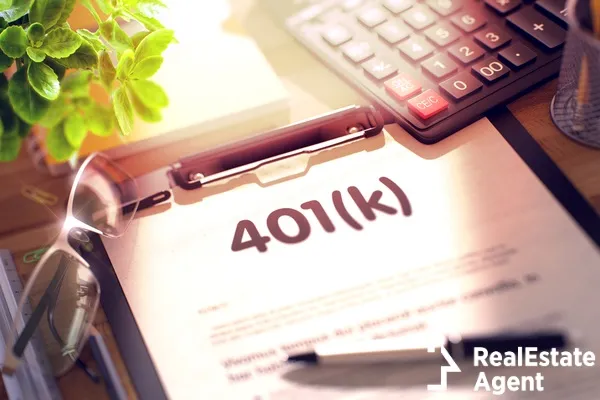
Job security for many people is an important aspect, but it might be overlooked if you don’t consider the unexpected, which often leads to unemployment. Take, for example, the pandemic that hit us in 2020, that left many people without jobs, especially in the leisure and hospitality industries.
Not only that but as many were concerned about keeping Covid-19 out of their homes, the financial struggles of not having a job pressured many people into researching investment opportunities that would combat financial burdens in the future. One of the main issues faced by unemployed people is their ability to keep up with mortgage payments.
Times like these make you think twice about managing your money when you have a large sum in your savings account. While many might argue that paying off the remainder of your mortgage will save you a lot of money in the long run and make it easier for you when facing unemployment, others might say otherwise. Other types of investments might be just as efficient or even more profitable than paying for your home.
Many say that investing in your 401k is the safest and the best long-term investment you can make. Of course, investing in stock, gold, and real estate still remains the most common and versatile investment in one’s portfolio. We will not go over all of them, but we want to see if you are better off investing your money in 401k or paying off your home.
What is the 401k plan?

Not to be mistaken for traditional pensions, the 401k plan is a defined-contribution retirement account offered by many employers to their employees, and it is featured in the U.S. Internal Revenue Code. If you are wondering what a 401k plan is and how it works? Here are a few details about it.
Since its inception in 1979, the 401k plan gained a lot of attention, and it has become one of the most popular types of employer-sponsored retirement plans in the US. Workers rely on the money they have invested in the 401k plan to provide for them during their retirement years. The principle of a 401k plan is pretty straightforward; the retirement savings account allows an employee to divert a portion of their income into a long-term investment.
The balance available in the account is determined by the contributions made to the plan. The employee is the one making contributions to the program, but the employer can choose to match the same portion of the contribution or not. The account balance is accessed by the employee after retirement, and based on the type of 401k account (Roth or traditional), they are taxed in different ways.
Benefits of 401k
If you want to pick investments for 401k in 2021, this might be the best tool for you to build your financial feature. Here are a few benefits that come with the 401k plan to help you start your investment journey.
- You benefit from tax advantages because contributions to a traditional 401k are taken out of your paycheck before income taxes are withheld. Because contributions are pre-tax, the total taxable income is lowered; therefore, you will owe less in income taxes.
- The 401k plan allows you complete control over the contribution amount. You can contribute as much or as little as you want to your account, but you do have to keep in mind that there is a superior limit imposed by the IRS or the plan itself. As of 2020 and 2021, the basic limits of employee contributions are $19,500 per year for workers under the age of 50 and $26,000 for those above.
- Time is on your side with the 401k plan — the earlier your start investing in your 401k, the more time your money has to grow. One of the greatest benefits of 401k is the compound interest, which can significantly impact long-term investments.
- Even if you switch jobs, the money you invested in the plan belongs to you. You don’t lose your earnings, but you instead take it with you. Leaving your 401k plan or moving it somewhere else depends on the plan type, so make sure you check your options to understand how you can proceed.
- With 401k, early savings and consistent contributions are easy to do thanks to the easy payroll deductions, making it easy to invest for your retirement. The automatic contributions directly from your paycheck make the saving process effortless and straightforward.
Paying off your mortgage early

The question boils down to whether you are better off investing or paying off your mortgage? In this case, are you better off eliminating your mortgage or using the extra money to invest in a 401k plan? First, you need to understand some of the benefits of paying your mortgage early and since there are multiple types of mortgages, here is what you need to know.
1. Save money on interest
Consider the following scenario: you have a $220,000, 30-year mortgage with a 4% interest rate. By adding one extra payment each year, you can knock a couple of years off your mortgage and save a significant amount of money. If you make an additional payment each quarter for the example presented above, you will pay off your mortgage 11 years earlier and save about $65,000 in interest.
By choosing a 15-year fixed-rate mortgage with a payment that’s not more than 25% of your take-home pay, you will be on the winning side of things. A 30-year mortgage will cost you a lot more in interest, and besides, who wants to be in debt for 30 years? Try to refinance a long-term mortgage into a 15-year loan, or if you have a low-interest rate, try to pay your 30-year mortgage in 15 years if you are not subject to prepayment penalties for each extra payment you make. Paying extra principal on a mortgage can help shorten the term of your mortgage but it can also set you back on your finances, so be aware of its effects.
2.Get out of debt by downsizing
One of the more drastic steps you can take to pay off your mortgage early is to downsize your house. Selling your larger home and using the profits to buy a smaller one that is less expensive could help you shave off a significant portion of your mortgage, if not all. However, this choice shouldn’t be taken lightly, and you should only consider it if your goal is to get rid of that debt as quickly as possible.
3.Moderation can save money
One solution to avoid the burden of paying a mortgage for the rest of your life is to be realistic with your home expectations and not bite more than you can chew. This advice applies to people who don’t have a mortgage yet but are looking to buy a home. It’s easy to overlook some crucial aspects when making a home purchase, and you might end up with a mortgage payment that you can’t sustain for long. We all want to purchase our dream home that looks and feels luxurious, but it might not be realistic given your financial situation.
Before going all in, factor in other debts you might have going on at the moment. Do you have six months of expenses in an emergency fund? Can you make at least a 10% (if not 20%) downpayment? Will you have enough money to cover closing costs, and is the house payment 25% less than my monthly take-home pay? Don’t take this decision lightly, or you will have a hard time paying off your mortgage early.
4.Ask for professional help
Also, don’t go into a home purchase without the help of a professional. If you are looking for a budget-friendly home, or if you want to sell your home with the purpose of downsizing, find a real estate agent in your area. Buyer’s agent can help with the closing process, and their knowledge of the area makes them your best ally in finding good deals and homes that suit your needs.
Investing in a 401k plan or mortgage-free?

It all boils down to this question. Are you better off without a mortgage, or are you getting more returns if you invest? What if you put that extra cash into an investment plan such as 401k instead of getting rid of your mortgage early?
Sadly, statistics show us that it’s almost always better to invest in other places rather than paying off your mortgage. If mortgage rates are at an all-time low, you get a return equal to your interest rate. That return will not mean much compared to the return you get from the 401k plan in which you constantly contributed for years. Many would rather find some strategies to generate passive income and avoid paying interest on their home loan.
Any investment is a risk, but you must consider that mortgage prices could plunge, leaving you with potential loss even after paying your mortgage. Remember that your home is considered a non-liquid asset because it could take months to sell the property and access the capital. So before you put a large chunk of your money towards paying off your mortgage early, don’t forget about liquidity.
It might take a while to access the 401k funds, but at least you are confident that the amount held in the account is at your disposal. If you are concerned about how 401k plans work when you retire, don’t worry, you have complete control over your account. On the flip side, if you have too much money tied up in your retirement account, you might pay high fees for early withdrawals.
Even if you don’t make any early withdrawals, you still have to pay account fees due to the administrative responsibilities required by the retirement plan. These fees may also be very high, and you have little control over how much you have to pay in fees.
Conclusion
When considering whether or not you want to pay off your mortgage early, you have to consider the pros and cons in order to figure out what works best for you. Maybe the return will be a lot higher if you put that extra cash towards other investments such as the 401k plan. Sometimes, the best solution might depend less on the numbers and more on being free of debt, which is a relief for many. Others might want to feel good about where their money is going, regardless of what the spreadsheet says.
















Have a question or comment?
We're here to help.